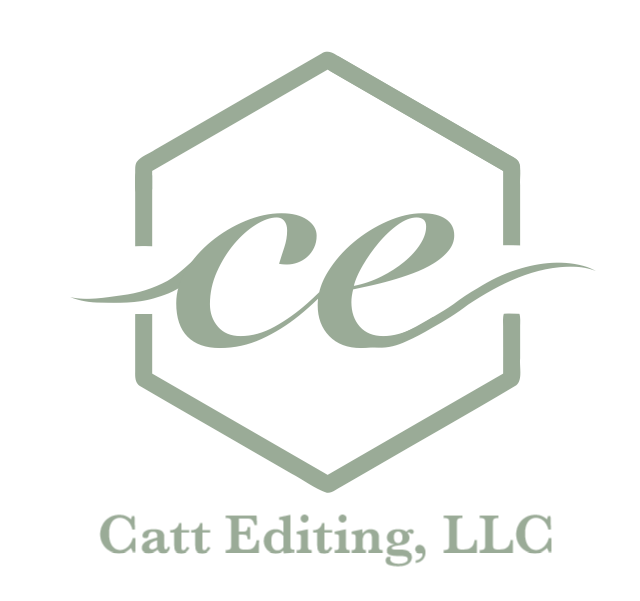
Looking for something specific?
Use the search bar below.
Do I Need Developmental Editing?
Whether someone needs developmental editing depends on the person and their manuscript and their goals for the manuscript. If you’re just writing because it makes you happy and you don’t care about making money, or because you just want to share your story with your family, maybe you don’t need it. If you’re creating a book out of a course (which is already structured well and pretty much acts as a detailed outline), maybe you don’t need it. If you prefer to use beta readers and critique partners to help you get the organization down, maybe you don’t need it.
It's totally up to you, your goals, your budget, and your timeline.
Beta Readers
Before paying anyone to edit your book, you can have beta readers read it to give you advice for free! (Yes, sometimes beta readers are paid. Those ones will probably guarantee better feedback than randoms from Facebook, but it’s up to you.)
Beta readers provide you with advice for the content of your book—yes, it’s that general. If you want them to focus on something specifically, ask them to do that: “Hi, when you’re reading my book, can you look at how the chapters are broken up? Let me know if you think it’s effective or know of another way to do it.” Otherwise, they’ll tell you whatever they think about your book from a reader’s standpoint.
4 Common Mistakes of Christian Authors
I work with a lot of Christian authors, and I noticed that most people are confused or don’t know about three particular things. Since these unique aspects only apply to this genre, they aren’t that well known. If you’re a Christian author, refer to God in a religious context, or quote any Bible Scriptures in your book, you’ll want to read this blog post!
Action Beats
Action beats are a replacement for dialogue tags to show the action the character takes during or after speaking.
Sentence Structure
You were probably taught this in school at some point, but it’s important, so let’s go over it again. Simple sentences, compound sentences, complex sentences, and compound-complex sentences are four basic types of sentence structure. Some people only know one or two types of sentence structure, which makes for really boring writing! It’s so repetitive!
Parallel Structure in Lists
Lists come up in writing all the time when you want to keep together multiple items. They can be made up of words, phrases, or entire clauses. For the list to make the most sense and flow well, each item in the list needs to be parallel to the others. This means each item of the list must make sense independently with the list introduction. That’s confusing. Here’s an example.
How to Cite Sources
Citing sources is essential to playing it fair in writing! Imagine spending a ton of time and effort to putting together a document of your own ideas based on your own research, and then someone comes along and pretends it’s their work. All they did was slap their name on your paper, and now they get all the credit! Unfair! That’s exactly what you’re doing to other people when you don’t cite your sources. Whether you’re directly quoting or paraphrasing someone else’s ideas, give credit where credit is due. Always. Another reason for citing sources, other than giving credit to others for their ideas, is to allow the readers to find those sources for more information. If you read a book with a lot of amazing quotes originating from a single book, you might be interested in reading that book. But you wouldn’t be able to do that if you didn’t know which book it came from.
Purple Prose
Overwriting often happens with amateur writers. New writers think they need to explain everything to the reader for them to understand. This means there’s lots of meaningless description without much progression of the story. The reader is pulled out of the story and gets bored! So, let’s learn how not to do that!
4 Ways an Editor Can Help You
You may think a quick spell-check (or a thorough one) and reading the document a hundred million times is a good replacement for hiring editors. You might even send it to friends and read editing blogs and do all kinds of other things to help you do a better job editing your own book . . . but it’s not the same. Hiring a professional editor is invaluable, and here’s why:
3 Dead Rules
Language changes and develops with the people speaking it. We do not speak the same in 2022 as we did in 1622. Not even the same as we did fifty years ago! Conventions and meanings change. This means we may have been taught rules that are no longer important. And somehow, some of us have been taught things that were never rules in the first place.
I want to go through some of these grammar “rules” that aren’t rules at all so we can stop worrying about them.
Does a Specific Audience Matter (in Nonfiction Books)?
Are you writing to experts in the field or someone who is just starting to learn about this topic? Are you writing to upper-class people, lower-class people, or people of all SES backgrounds? Are you writing to people in your geographical area only or anywhere in the world?
You don’t need to write to everyone.
How to Outline a Self-Help Book
Have you wanted to write a book forever but thinking about staring at a blank page is paralyzing? Where do you even start?
Imagine if you could sit down every day (or however often) to write, and you knew exactly what to write about. What if you always knew exactly what came next and could pick up right where you left off each time?
3 Questions to Consider Before Drafting a Nonfiction Book
I know you’re probably eager to get started writing your nonfiction book (either memoir or self-help), but you need a plan first. It will be worth it to take the time now and figure out the answers to three big questions before you start writing.
Using Real Names in Nonfiction Books
If you thank someone by name in the acknowledgments section of your book, you don’t need permission because it’s probably a positive or neutral mention. If you want to talk about how your stepdad ruined your life, you’ll need permission because that’s negative. Seems pretty easy, but when in doubt, always ask permission. I’ll mostly be talking about negative mentions in this blog post.
5 Ways to Improve Your Productivity as an Author
For authors, especially for self-publishers, writing well and writing fast are our bread and butter. If we cannot produce books, we don't make any money. And if we don't make any money, then writing is just a hobby.
For some people, that is just fine. Writing can be a hobby, and a very fulfilling one at that.
However, for the rest of us, if we want to make a living at writing books, we have to learn to write efficiently.
In this article, I will cover a few tips on how to do this.
Fiction Writing Exercises and Prompts for Writers
Writing exercises are a good way to practice without too much commitment to a story. The point is to write, as most of the time, the pressure is on how to start. Exercises like this can make you feel less overwhelmed and help you put pen to paper (or fingers to keyboard).
Gendered Language: Tips for Inclusive Writing
It’s very rare that someone intentionally goes out to exclude someone through their writing, and most people don’t mean to throw in sexist stereotypes when they’re writing a book. And yet it happens every day. . . . Why is this? And more importantly, what can we do about it?

















